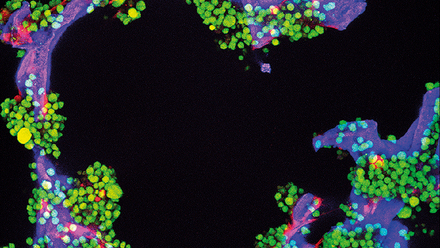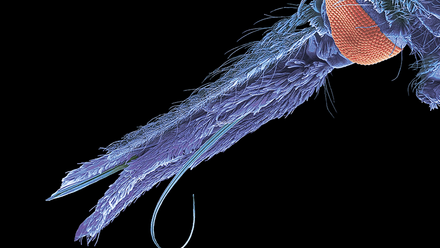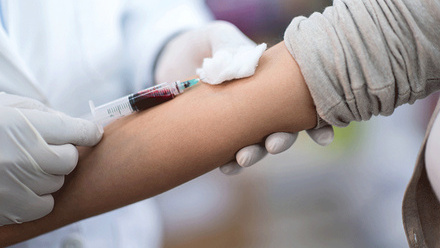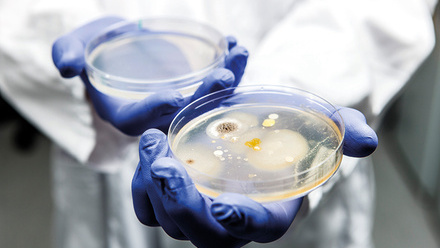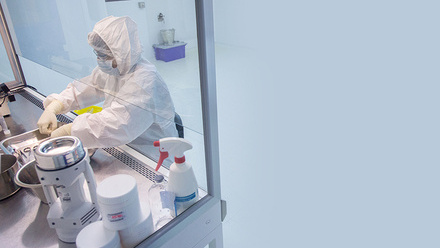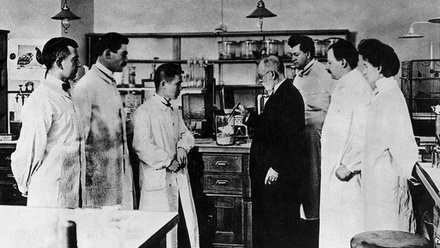My Lab: In a Military Field Hospital
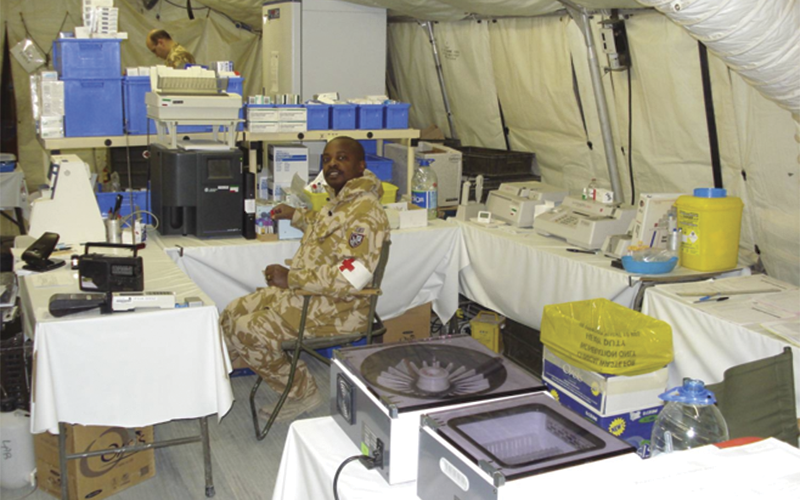
My lab supports a military field hospital. The initial laboratory is a light, tentbased facility, delivered by aircraft and has two biomedical scientists providing a 24/7 service.
The capability is relatively limited, but covers basic blood sciences, emergency whole blood donation from pre-screened donors and also multiplex polymerase chain reaction for general screening of nontrauma patients. Over time the laboratory develops and moves into purpose-built accommodation, with additional biomedical scientists to deliver an increased capability. This includes automated analysers for haematology, biochemistry and coagulation studies and microbiology with culture and antibiotic sensitivity.
It also has deployed platelet apheresis from pre-screened donors and point of care testing equipment. The daily working practices are similar to many clinical laboratories, but we are also required to undertake additional roles, such as the departmental lead for medical stores, laboratory equipment, clinical governance and infection control. With only a small number of biomedical scientists, there is very little downtime when delivering a 24/7 service. While the deployment of a field hospital lasts until the mission is complete, each biomedical scientist will stay no longer than six months before being replaced.
Small, commercial, off -the-shelf equipment is not designed for the conditions we are working in, and normally has an operating range of 20-30oC. Creating and maintaining a suitable environment for the laboratory is critical when external temperatures can be in excess of 45oC in the Middle East.
The extended supply lines are a major challenge for military logisticians, especially for blood components, which are all
sourced from NHS Blood and Transplant. They are packed by the blood supply element of the Centre of Defence Pathology and fl own to the overseas military hospital.
The use of portable, passive systems, such as Golden Hour Boxes, provides a 72-hour window for shipping, even in the most harsh environment. With the facility designed to be light and mobile, back-up equipment is not common. Undertaking strict user maintenance, along with the deployment of medical equipment engineers, keeps the critical equipment fit for purpose.
The laboratory capability develops with time, however, there will always be a requirement to refer samples that cannot be analysed locally. The MOD has a contract with Portsmouth Hospital NHS Trust to provide this referred sample service and the challenge is getting the samples to the UK, in the right state, in a timely manner, to provide meaningful results.
Acting in small teams with no deployed laboratory consultants, direct access to advice in the UK is critical for the deployed biomedical scientists. The Centre of Defence Pathology provides a 24/7 reach-back facility for advice in technical and clinical matters, and vital blood resupply.

